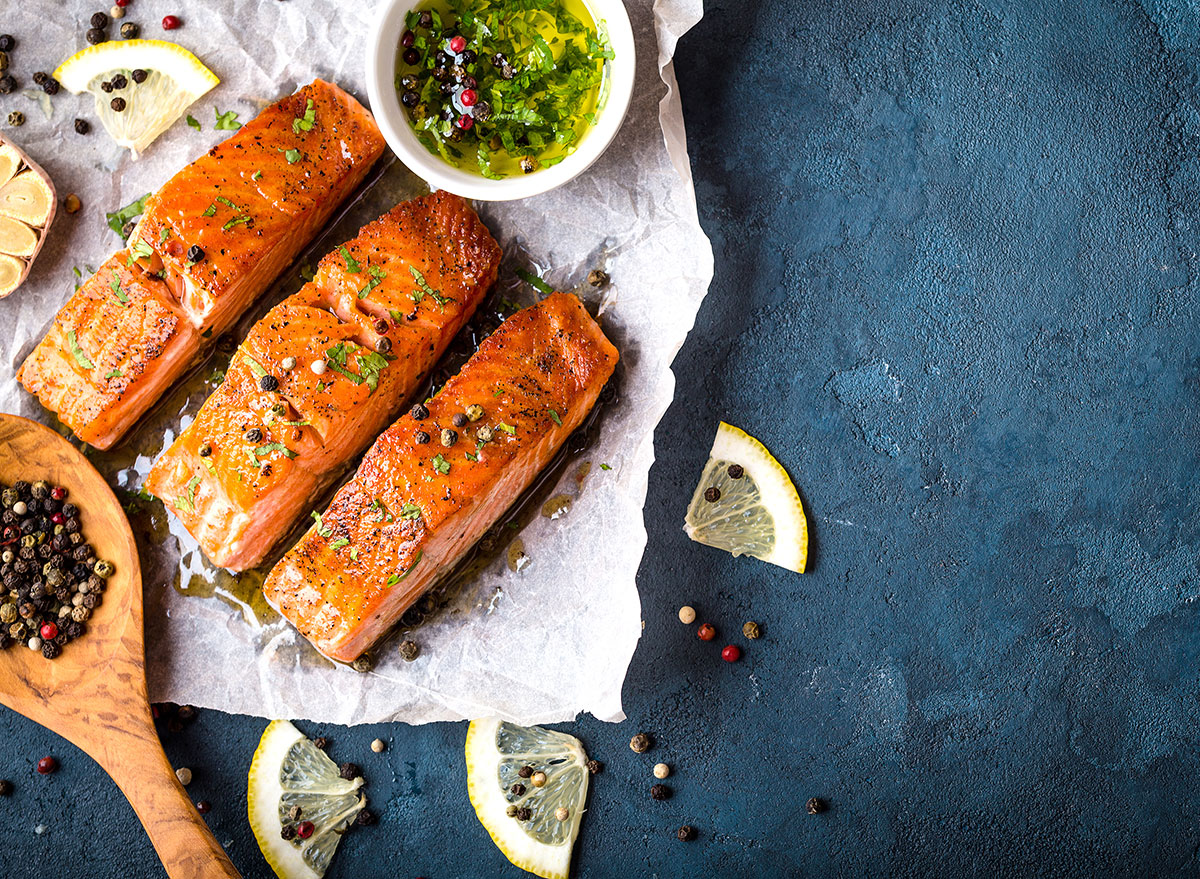What’s the Difference Between Omega-3, -6, and -9? A Registered Dietitian Explains

You may have at least seen or heard about all three of the fatty acids omega-3, omega-6, and omega-9, but do you know the difference between them? It’s not exactly common knowledge unless you’re a registered dietitian or nutritionist, which is why we called on Sydney Greene, MS, RD, to clearly explain the differences among the three.
Prepare to be an omega expert as you uncover the differences between omega-3, -6, and -9.
What are omega-3 fatty acids?
“Omega-3 fatty acids are a class of polyunsaturated fatty acids. Though there are many forms, the three most popular are ALA, EPA, and DHA,” says Greene. “ALA is an essential fatty acid, meaning our bodies cannot make it, so we must get it from food.”
Polyunsaturated fats, like monounsaturated fats, are liquid at room temperature, as opposed to a saturated fat such as coconut oil and butter, which are both solid at room temperature. These are better for heart health than saturated fats, which can clog the arteries over time if eaten in excess and regularly.
She explains that the liver converts ALA to EPA and DHA in the body. However, the rate at which it makes these two kinds of omega-3s isn’t sufficient enough to sustain levels, so it’s critical that we include foods that contain EPA and DHA into our diet to meet the necessary requirement.
“Omega-3s make up the structure of cells in our body. We also need them for hormone production, immune function, and heart and lung support,” says Greene. “DHA is especially important for eye, brain, and even sperm cells. Humans ages 19-50 need about 1.5 grams daily.”
Foods that are rich in omega-3 fatty acids include:
- salmon
- sardines
- oysters
- flaxseed
- walnuts
What are omega-6 fatty acids?
Similar to omega-3 fatty acids, omega-6 fatty acids are also a class of polyunsaturated fats.
“Based on the classic western diet, Americans tend to have increased intake of omega-6 fatty acids, as these are found in the majority vegetable oils used for cooking,” Greene explains. This the type of oil you can expect to consume at restaurants and in packaged foods. Greene says these fats are stored and then used for energy.
“Though safe and even beneficial in moderate amounts, the issue with omega-6s is that most Americans consume more [of it] than omega-3s, which throws off a healthy ratio. When the ratio of omega-6 to omega-3 leans more toward 6, more inflammatory processes can occur in the body,” she says.
In short, you want more omega-3 fatty acids in your diet because of its ability to ward off inflammation in the body. Omega-6 fatty acids are known to cause inflammation when consumed excessively. Aside from vegetable oil, Greene says other good sources of omega-6 fatty acids include:
- safflower oil
- soybean oil
- peanut oil
What are omega-9 fatty acids?
“Unlike omega-3 and omega-6 fatty acids, omega-9 fatty acids are called monounsaturated fatty acids, which refers to their chemical structure. These fats are not essential; our bodies are able to make them, but it is still important to consume them in the diet,” explains Greene.
This form of fatty acids is attributed to lowering the harmful kind of cholesterol known as LDL while also raising HDL, the healthy kind of cholesterol.
“There are even some studies that suggest they help support healthy blood sugar [levels],” says Greene.
Common sources of omega-9 fatty acids include:
- olive oil
- canola oil
- sunflower oil
- almonds
Which one is healthier—omega-3, -6, or -9?
It’s not a question of which is healthier because you need all three. Achieving a balance of all three is the remedy.
“In the standard Western diet that is high in processed and packaged foods, omega-3 fatty acids are not consumed enough, especially EPA and DHA,” says Greene. “If you eat fish, consuming salmon, mackerel, sardines, or oysters two times a week will get you to your recommended amount.”
For those who don’t eat fish, such as vegans and some vegetarians, Greene recommends eating a variety of nuts and seeds, most of which are high in ALA.
“But in order to get brain-boosting DHA, non-fish eaters can try a microalgae supplement. I like Nordic Naturals,” she adds.
Should you take either in the form of supplements?
Greene says that if you’re going to take supplements, only take omega-3 ones because you likely already get plenty of the other two in your everyday diet.
“If you are purchasing an omega-3 supplement, [make sure] you buy it from a reputable source. Consumer Labs is a great resource to verify supplements. Designs for Health, Nordic Naturals, and Metagenics have great options,” she says.